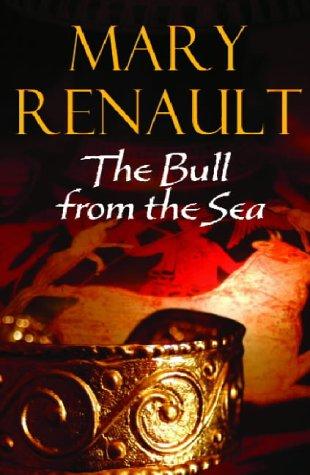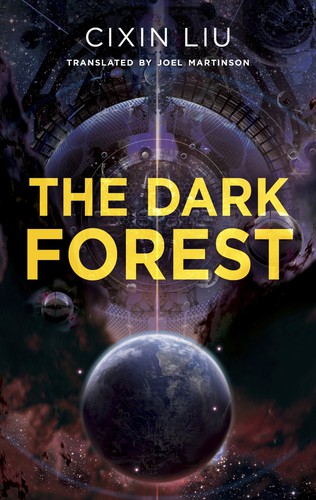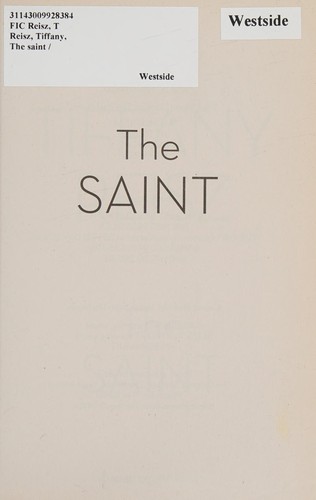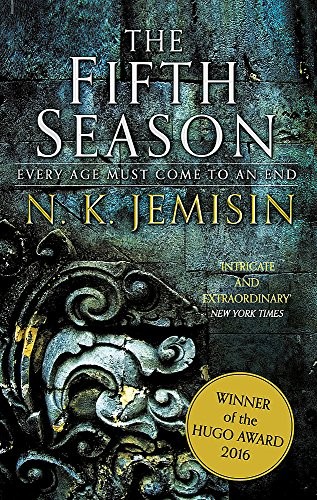Dysmorphia rated The bull from the sea: 4 stars

The bull from the sea by Mary Renault
Release date: July 10, 2001 The Bull from the Sea reconstructs the legend of Theseus, the valiant youth who slew …
I like to read science fiction, fantasy, poetry, philosophy, romance, and sometimes big-L literature. I'm on Mastodon at sfba.social/@dys_morphia I have a blog where I sometimes write book reviews rinsemiddlebliss.com/tags/book-review/
This link opens in a pop-up window

Release date: July 10, 2001 The Bull from the Sea reconstructs the legend of Theseus, the valiant youth who slew …
It's historical fiction based on myth and also history, which means it's basically an amazing fantasy story. Theseus, founder-hero of Athens has amazing adventures. There's battle, ancient kingdoms, magic, ancient rites, messages from gods, incredible heroism, pride and honor, tragedy, wonder. And it's all from the point of view of Theseus, whose Ancient Greek way of thinking is different enough from our own that you might as well be reading science fiction. It is so, so good.
Usually when I review a book from previous centuries, I have to preface it with warnings about the bits that are dated, weird, or offensive to modern sensibilities. No such preamble is needed here.
The book is a bit prescient in that it presents that unfolding of a romance between two people who first meet as operators over a telegraph wire. Maybe that's dated again because now when people meet online they often do know what each looks like. Still, the story, including the fascination of the unknown others, seemed to speak to experiences I've had with online friendships and would-be romances.
The structure of the story is the classic comedy-romance with multiple couples, mistaken intentions, mistaken identity, interfering others, and a happy ending. If you've read, for example, PG Wodehouse, the plot structure will feel familiar. I don't mean this to say it's boring, but rather that the structure …
Usually when I review a book from previous centuries, I have to preface it with warnings about the bits that are dated, weird, or offensive to modern sensibilities. No such preamble is needed here.
The book is a bit prescient in that it presents that unfolding of a romance between two people who first meet as operators over a telegraph wire. Maybe that's dated again because now when people meet online they often do know what each looks like. Still, the story, including the fascination of the unknown others, seemed to speak to experiences I've had with online friendships and would-be romances.
The structure of the story is the classic comedy-romance with multiple couples, mistaken intentions, mistaken identity, interfering others, and a happy ending. If you've read, for example, PG Wodehouse, the plot structure will feel familiar. I don't mean this to say it's boring, but rather that the structure (unlike in many older books) is pretty accessible to a modern reader.
The last important thing worth mentioning is the main character, Nattie. Nattie works as a telegraph operator, lives on her own in a rented apartment, is not particularly pretty, and has aspirations to be a writer. Most of the story is from a close 3rd person view of Nattie, and Nattie is an excellent character. The narrator, speaking from Nattie's close view, has some sharp things to say about women's limitations in society in some places, and Nattie's very existence as a working and ambitious woman are a statement about women's changing place in society.
Read this book for its delightful story line, its prescience about online friendships, its view into Victorian society, and its progressive view of women's role in society.
This book purports to be a memoir, but it reads like explicit accounts of BDSM sex with boring bits of the writer's (main character's?) life in between to prove that she's really normal. OK, she's normal. Boring even. But the thing that I would expect from what is supposedly a real memoir would be a bit more about negotiation, a bit more interesting introspection, a bit more, oh I don't know, personal growth? self-reflection? I suppose what in a fiction book would be just saying the main character is boring, here damns the author herself. Shallow.

This is the second novel in the "Remembrance of Earth’s Past" near-future trilogy. Written by the China's multiple-award-winning science fiction …

Rebellious, green-eyed Eleanor never met a rule she didn't want to break. She's sick of her mother's zealotry and the …
I got tricked into reading contemporary drama. Goddamn it. I have thoughts about this book but you can ask me in person. My summary though is that people into kink having unhappy endings pisses me of ideologically even if it works in the story (as it does here) because it reminds me of times when other sexual minorities were only allowed to be depicted in fiction and film if they died at the end or came to a bad end anyhow.
It's still a good book. Which only makes me more annoyed.
The Three Body Problem is the best piece of hard science fiction I've read this year. At first I thought I'd have issues keeping track of the Chinese names because it seemed like there were so many characters and some had nicknames (aka the Anna Karenina problem), but as the story went on it became clear that it was all the same people, just over an immense time span. The narrative style is at times dry and didactic. It felt like I was reading a history book written in the far future and translated back into English. But now that I've finished, I think the unusual narrative style is part of the fun. The translator's note at the end actually shed some light on it: he deliberately tried to keep the feeling that this was a different literary tradition.
Despite the quibbles, The Three Body Problem gets four stars from …
The Three Body Problem is the best piece of hard science fiction I've read this year. At first I thought I'd have issues keeping track of the Chinese names because it seemed like there were so many characters and some had nicknames (aka the Anna Karenina problem), but as the story went on it became clear that it was all the same people, just over an immense time span. The narrative style is at times dry and didactic. It felt like I was reading a history book written in the far future and translated back into English. But now that I've finished, I think the unusual narrative style is part of the fun. The translator's note at the end actually shed some light on it: he deliberately tried to keep the feeling that this was a different literary tradition.
Despite the quibbles, The Three Body Problem gets four stars from me for the story and characters. I don't want to say too much about the story because its slow unfolding is a huge part of the fun. In some ways it's a traditional human-alien first contact story. But in many other ways it completely defied my expectation of how that kind of story would unfold. The three main characters, Ye, Wang, and Da Shi are all fully developed people, and their complex personalities are what pulled me into the book first.
The aliens are great. Just so damn alien. Also this book features the best use of a videogame as a story telling device I've seen yet. And despite the long, didactic passages about complex scientific and mathematical concepts, and the foreignness of Chinese culture to me as an American reader, Three Body is an extremely accessible book. It's no wonder it won the Hugo this year.
I recommend it to people who like hard science fiction, are interested in physics, and are interested in China (any combination of the above)

This is the way the world ends. Again.
Three terrible things happen in a single day. Essun, a woman living …